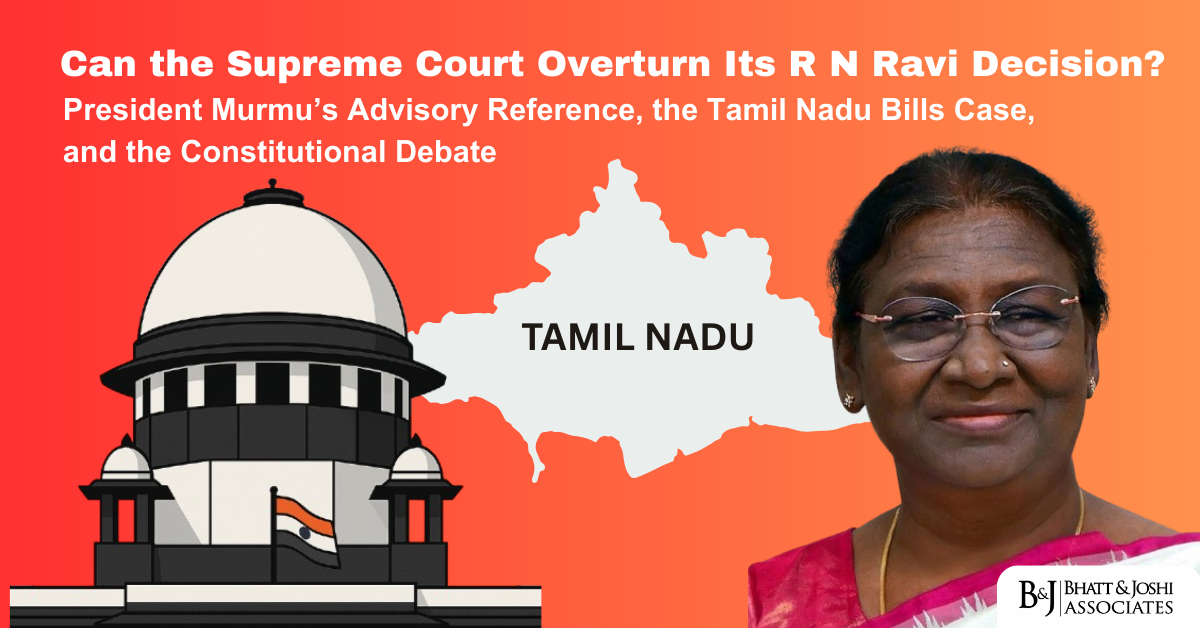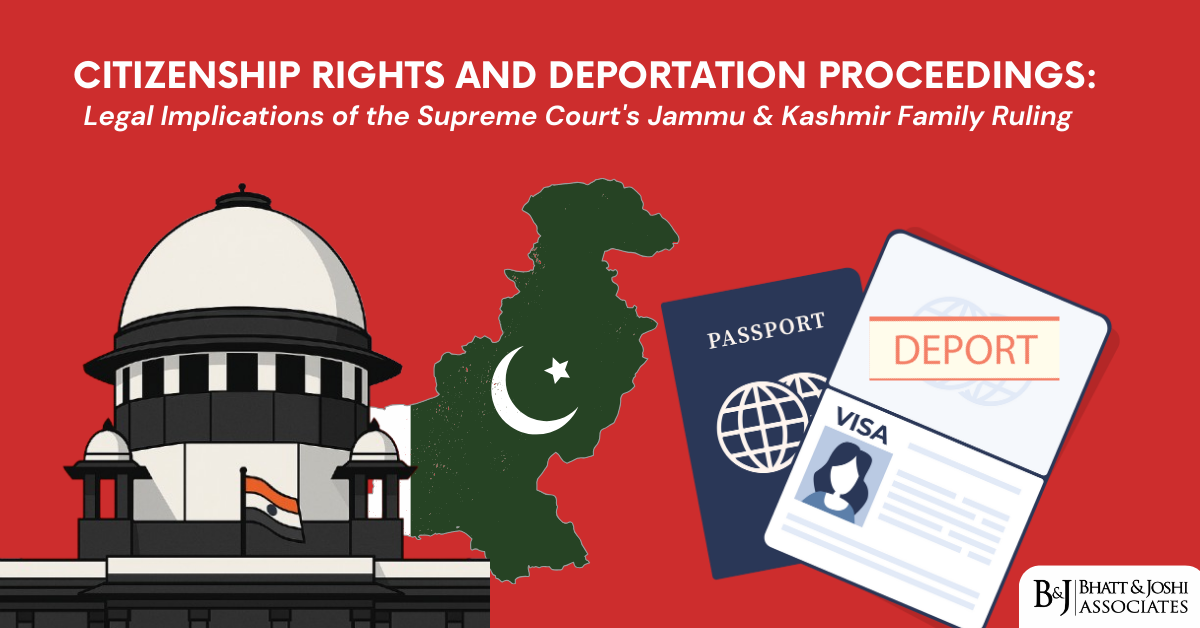Introduction
The question of pension rights of second wives of deceased government employees represents one of the most intricate areas of Indian administrative and family law. This complex legal terrain involves the intersection of service conduct rules, personal laws, constitutional principles, and pension regulations. When a government employee with multiple wives passes away, the distribution of family pension and other benefits becomes a contentious issue that has generated significant litigation and evolved jurisprudence over the decades.
The legal framework governing these situations encompasses multiple layers of regulation, from the Central Civil Services (Conduct) Rules, 1964, to state-specific pension rules, and personal laws governing marriage. The judicial approach has evolved through landmark cases that have attempted to balance service discipline, constitutional rig

Legal Framework Governing Government Employee Marriages
Central Civil Services (Conduct) Rules, 1964
The foundational legal framework for central government employees is established under Rule 21 of the Central Civil Services (Conduct) Rules, 1964 [1]. This rule explicitly states that “No Government servant shall enter into, or contract, a marriage with a person having a spouse living” and “No Government servant having a spouse living, shall enter into, or contract, a marriage with any person.” However, the rule provides an exception where the Central Government may permit such marriages if they are permissible under personal law and there are other justifiable grounds.
The rule serves a dual purpose: maintaining service discipline while acknowledging the diversity of personal laws in India. This provision recognizes that while certain religious personal laws may permit polygamy, government service requires additional regulatory oversight to ensure that personal choices do not compromise professional conduct or administrative efficiency.
State-Level Conduct Rules
Various states have enacted similar provisions adapted to their administrative requirements. The Assam Civil Services (Conduct) Rules, 1965, under Rule 24, mirrors the central framework but with specific state adaptations [2]. These rules require government servants to obtain prior permission before contracting a second marriage, even when such marriage is permissible under personal law. The violation of these conduct rules can result in disciplinary action, including removal from service.
The Uttar Pradesh Government Servant Conduct Rules, 1956, under Rule 29(1), similarly prohibits second marriages without government permission. These rules have been subject to extensive judicial scrutiny, particularly in cases involving the balance between religious freedom and service discipline.
Pension Regulatory Framework
Assam Services (Pension) Rules, 1969
The Assam Services (Pension) Rules, 1969, particularly Rule 143, defines the family for pension purposes and establishes the hierarchy of entitlement [3]. According to Rule 143(ii), family pension is payable to the widow, and where there are multiple widows, the pension is payable to the eldest surviving widow. Upon her death, it becomes payable to the next surviving widow.
This rule creates a sequential entitlement system rather than a proportionate sharing mechanism, which has been a source of significant litigation. The rule’s Note 1 specifically addresses situations involving multiple widows, establishing precedence based on seniority of marriage rather than simultaneous entitlement.
Constitutional and Legal Principles
The constitutional framework under Article 25 guarantees freedom of religion, including the right to practice religious customs [4]. However, this freedom is subject to public order, morality, and health considerations. The Supreme Court has consistently held that practices permissible under personal law do not automatically qualify as protected religious practices, particularly when they conflict with service regulations or social welfare objectives.
Landmark Judicial Precedents in Pension Rights of Second Wives
Khursheed Ahmad Khan vs. State of Uttar Pradesh (2015)
The Supreme Court’s decision in Khursheed Ahmad Khan vs. State of Uttar Pradesh represents a watershed moment in the jurisprudence surrounding government employee polygamy and its consequences [5]. The case involved a government irrigation supervisor who contracted a second marriage without obtaining the required departmental permission, in violation of Rule 29(1) of the U.P. Government Servant Conduct Rules, 1956.
The Supreme Court made several crucial determinations in this case. First, it held that polygamy is not an integral part of any religion and therefore does not enjoy constitutional protection under Article 25. The Court observed that “what is permitted or not prohibited by a religion does not become a religious practice or a positive tenet of a religion.” This principle established that conduct rules restricting polygamy do not violate constitutional guarantees of religious freedom.
Second, the Court affirmed that government servants are subject to a higher standard of conduct, and their personal choices must align with service regulations. The Court noted that even if polygamy were considered a religious practice, it could be regulated under Article 25(2)(b) in the interest of social welfare and reform.
The case established the principle that service misconduct arising from unauthorized second marriages can result in removal from service, and such punishment is proportionate to the offense. This precedent significantly influences pension rights of second wives, as it establishes that unauthorized second marriages constitute service misconduct with continuing consequences, which can directly impact the second wife’s eligibility for post-retirement benefits.
Sirazun Nessa vs. State of Assam (2011)
The Gauhati High Court’s Division Bench decision in Sirazun Nessa vs. State of Assam initially took a more liberal approach to the pension entitlement issue [6]. The Court held that both surviving widows of a deceased government employee are entitled to proportionate family pension, with the Accountant General determining the specific proportion in accordance with Mohammedan law.
This decision was based on the interpretation that Rule 143 of the Assam Services (Pension) Rules, 1969, did not explicitly prohibit consideration of valid marriages under personal law for pension purposes. The Court reasoned that while conduct rules may prohibit second marriages without permission, such prohibition should not automatically disqualify widows from pension benefits, particularly when the marriage was valid under personal law.
However, this liberal interpretation has been subsequently questioned and effectively overruled by later decisions that follow the Supreme Court’s precedent in Khursheed Ahmad Khan.
Narji Begum vs. State of Assam
The case of Narji Begum vs. State of Assam represents the contemporary judicial approach to pension rights of second wives [7]. Narji Begum, the second wife of Taiyab Ali, a government constable who died in a road accident while on duty, sought family pension and other benefits. The Court followed the Supreme Court’s precedent in Khursheed Ahmad Khan and held that the second wife is not legally entitled to any proportionate pension during the lifetime of the first wife under the 1969 Pension Rules.
The Court noted that while the first wife had no objection to sharing the pension, legal entitlement cannot be established merely through consent. The judgment emphasized that pension rules must be interpreted strictly, and benefits can only be granted to those explicitly entitled under the regulations.
Significantly, the Court observed that if both wives were to file a joint petition for agreed proportionate pension, the authorities might consider such arrangement in accordance with law. This observation suggests a potential avenue for consensual resolution while maintaining legal propriety.
Rejina Begum vs. State of Assam (2017)
In Rejina Begum vs. State of Assam, the Gauhati High Court further clarified the legal position regarding second wife pension entitlements [8]. The Court explicitly acknowledged that while the Division Bench decision in Sirazun Nessa had held that second wives are entitled to proportionate family pension, subsequent Supreme Court precedent in Khursheed Ahmad Khan necessitated a different approach.
The Court, addressing the pension rights of second wives, held that it was bound by the Supreme Court’s ruling and therefore had to prioritize the first wife’s entitlement over any proportionate sharing arrangement. This decision effectively established that post-Khursheed Ahmad Khan, courts must follow the strict interpretation of pension rules that favors sequential entitlement over proportionate distribution.
Contemporary Legal Developments
Musstt. Keyarun Nessa Barbhuiya vs. State of Assam (2021)
Recent decisions have continued to refine the legal position while acknowledging the evolving jurisprudence [9]. In Musstt. Keyarun Nessa Barbhuiya vs. State of Assam, the Court addressed situations where the first wife had already deceased, thereby allowing the second wife to claim pension benefits under the sequential entitlement system established by Rule 143(ii).
The Court reaffirmed that for pension purposes involving multiple wives, government permission for the second marriage is not a prerequisite, provided the marriage is legally valid. However, this principle operates within the framework of sequential entitlement rather than simultaneous proportionate sharing.
Renu Begum vs. State of Assam (2022)
The case of Renu Begum vs. State of Assam highlighted the evidentiary challenges faced by second wives in establishing their claims [10]. The Court noted contradictions in the documentary evidence presented by the petitioner, including conflicting divorce papers and affidavits, which undermined the credibility of the claim.
This case emphasizes the importance of maintaining clear and consistent documentation regarding marital status and emphasizes that pension authorities must carefully scrutinize claims to prevent fraudulent assertions.
Service Conduct Rules and Their Implications
Disciplinary Consequences
The violation of conduct rules regarding unauthorized second marriages carries significant disciplinary implications that extend beyond the immediate employment relationship. Government employees who contract second marriages without departmental permission face potential removal from service, forfeiture of pension benefits, and disqualification from future government employment.
The rationale behind these stringent provisions lies in the government’s interest in maintaining service discipline and ensuring that employees adhere to prescribed standards of conduct. The requirement for prior permission serves multiple purposes: it allows departments to assess the circumstances surrounding the proposed marriage, ensures transparency in employee personal affairs that might affect service delivery, and maintains consistency with government policy objectives.
Administrative Discretion
The conduct rules provide government authorities with discretionary power to permit second marriages under exceptional circumstances. This discretion is typically exercised when the proposed marriage is legally permissible under personal law and there are compelling grounds supporting the application. Factors considered include the welfare of existing family members, the employee’s service record, and the broader public interest.
However, this discretionary power is not absolute and must be exercised reasonably and in accordance with established principles. Administrative authorities must provide clear justification for their decisions and ensure that permissions are granted consistently and fairly.
Constitutional Perspectives
Article 25 and Religious Freedom
The constitutional guarantee of religious freedom under Article 25 has been central to challenges against conduct rules restricting polygamy [11]. Petitioners have argued that these rules violate their fundamental right to practice religion, particularly when their personal law permits multiple marriages.
However, the Supreme Court has consistently rejected these challenges, holding that Article 25 protects religious faith and belief rather than all practices that may be permitted under personal law. The Court has emphasized that religious practices must yield to considerations of public order, morality, and social welfare.
The constitutional analysis involves balancing individual religious rights against legitimate state interests in maintaining service discipline and promoting social reform. The Court has determined that the state’s interest in regulating government employee conduct outweighs individual claims to religious practice, particularly when such practices conflict with service obligations.
Equality and Non-Discrimination
Article 14’s guarantee of equality before law has also been invoked in pension entitlement cases, with petitioners arguing that differential treatment of multiple wives violates constitutional principles of equality [12]. However, courts have generally held that such differential treatment is based on reasonable classification related to service rules and administrative efficiency rather than arbitrary discrimination.
The legal framework recognizes that government employment involves additional obligations and restrictions that do not apply to private citizens. This recognition justifies differential treatment of government employees in matters of personal conduct that might affect their professional responsibilities.
International and Comparative Perspectives
Global Approaches to Polygamy in Public Service
International experience provides useful context for understanding India’s approach to polygamy in government service. Many countries with diverse religious populations have developed frameworks that balance religious freedom with administrative requirements.
Countries like Malaysia and Singapore, which have significant Muslim populations, have established registration requirements for polygamous marriages that include administrative oversight and welfare considerations for existing wives and children. These systems typically require judicial or administrative approval before additional marriages can be contracted.
European countries with growing Muslim populations have generally maintained prohibitions on polygamy while recognizing existing polygamous marriages contracted in countries where such marriages are legal. However, these recognition principles typically do not extend to public sector employment, where additional restrictions may apply.
Comparative Legal Analysis
The Indian approach represents a middle path between complete prohibition and unrestricted permission. By requiring administrative approval for second marriages while acknowledging their validity under personal law, the legal framework attempts to balance competing interests and constitutional principles.
This approach contrasts with more restrictive systems that completely prohibit polygamy regardless of religious considerations, and more permissive systems that impose minimal restrictions on multiple marriages. The Indian model’s emphasis on administrative discretion and case-by-case evaluation allows for flexibility while maintaining overall policy coherence.
Practical Implications and Challenges
Documentation and Evidence
One of the significant practical challenges in pension rights of second wives cases involves establishing the validity and sequence of marriages. Courts require clear documentary evidence of marriage dates, any intervening divorces, and the legal status of all parties involved. The absence of standardized marriage registration across different religious communities creates evidentiary challenges that complicate pension determinations.
Government departments have increasingly emphasized the importance of maintaining accurate service records that reflect employees’ current marital status. This emphasis on documentation serves both administrative efficiency and legal clarity in subsequent benefit determinations.
Administrative Processing
The complex legal framework surrounding pension rights of second wives has created administrative challenges for pension processing authorities. Government departments must carefully review each case to determine legal entitlement while avoiding discrimination and ensuring compliance with judicial precedents.
The Accountant General offices, which process pension claims, have developed specialized procedures for handling multiple wife situations. These procedures typically involve legal review, verification of marriage validity, and determination of entitlement sequence based on applicable rules and court decisions.
Future Directions and Reforms
Legislative Considerations
The evolving jurisprudence and practical challenges have highlighted the need for potential legislative reforms to provide clearer guidance on pension entitlements in multiple wife situations. Proposed reforms include establishing uniform documentation requirements, creating standardized procedures for determining entitlement priority, and developing mechanisms for consensual benefit sharing.
Legislative discussions have also addressed the broader question of whether service conduct rules should be harmonized across different states and central services to ensure consistency in application and enforcement.
Judicial Trends
Recent judicial decisions indicate a trend toward stricter interpretation of pension rules while maintaining sensitivity to legitimate claims by all family members. Courts are increasingly emphasizing the importance of following established legal frameworks while encouraging administrative authorities to consider compassionate provisions where appropriate.
The judiciary has also shown increased attention to ensuring that pension determinations are based on clear legal principles rather than ad hoc considerations, thereby promoting consistency and predictability in benefit administration.
Conclusion
The legal landscape surrounding pension rights of second wives represents a complex intersection of constitutional law, administrative regulation, and personal law principles. The evolution from the more liberal approach in Sirazun Nessa to the stricter interpretation following Khursheed Ahmad Khan reflects the judiciary’s attempt to balance competing interests while maintaining legal coherence.
The current legal position establishes that second wives of government employees are not automatically entitled to proportionate pension sharing during the lifetime of the first wife. However, sequential entitlement principles ensure that second wives may become eligible for benefits upon the death of preceding wives, provided their marriages were legally valid.
The framework emphasizes the importance of service discipline and administrative consistency while acknowledging the diversity of personal laws governing marriage in India. Future developments in this area will likely focus on refining administrative procedures, improving documentation requirements, and potentially developing legislative frameworks that provide greater clarity and consistency across different jurisdictions.
For legal practitioners and government employees, these developments underscore the importance of understanding both service obligations and personal law implications when making decisions about marriage and family arrangements. The intersection of professional responsibilities and personal choices requires careful consideration of legal consequences that may extend far beyond the immediate employment relationship.
The ongoing evolution of this legal framework reflects broader societal discussions about gender equality, religious freedom, and the role of government in regulating personal relationships. As Indian society continues to evolve, the legal treatment of Pension Rights of Second Wives will likely continue to develop, requiring ongoing attention from legal professionals, policymakers, and affected individuals.
References
[1] Central Civil Services (Conduct) Rules, 1964, Rule 21. Available at: https://www.referencer.in/CS_Regulations/CCS(Conduct)Rules1964/Rule_21.aspx
[2] Rejina Begum v. State of Assam and Ors., Gauhati High Court (2017). Available at: https://www.casemine.com/judgement/in/5d919956714d587fe94cca22
[3] Assam Services (Pension) Rules, 1969, Rule 143. Family Pension Guidelines, Accountant General (A&E), Assam. Available at: https://cag.gov.in/ae/assam/en/page-ae-assam-family-pension-agaeasm
[4] Constitution of India, Article 25 – Freedom of conscience and free profession, practice and propagation of religion.
[5] Khursheed Ahmad Khan vs. State of U.P. & Ors., (2015) 1 SCC 734. Available at: https://indiankanoon.org/doc/180745750/
[6] Musstt. Keyarun Nessa Barbhuiya vs. The State of Assam and 5 Ors., Gauhati High Court (2021). Available at: https://www.latestlaws.com/judgements/gauhati-high-court/2021/march/2021-latest-caselaw-814-gua
[7] Narji Begum vs. State of Assam, Gauhati High Court case discussed in legal analysis. Referenced in judicial precedents.
[8] Rejina Begum (Musstt.) vs. State of Assam and Others, Gauhati High Court (2017). Available at: https://www.casemine.com/judgement/in/5d919956714d587fe94cca22
[9] Musstt. Keyarun Nessa Barbhuiya vs. The State of Assam and 5 Ors., Gauhati High Court (2021). Available at: https://www.latestlaws.com/judgements/gauhati-high-court/2021/march/2021-latest-caselaw-814-gua
[10] Renu Begum @ Renu Khatun vs. The State of Assam and 4 Ors., Gauhati High Court (2022). Available at: https://indiankanoon.org/doc/121276798/
[11] Constitution of India, Article 25 – Freedom of conscience and free profession, practice and propagation of religion.
[12] Constitution of India, Article 14 – Equality before law and equal protection of laws.
Links Download Full Judgement
- https://bhattandjoshiassociates.s3.ap-south-1.amazonaws.com/judgements/CCS_Conduct_Rules_1964_Updated_27Feb15_0.pdf
- https://bhattandjoshiassociates.s3.ap-south-1.amazonaws.com/judgements/Rejina_Begum_vs_The_State_Of_Assam_And_6_Ors_on_5_January_2021.PDF
- https://bhattandjoshiassociates.s3.ap-south-1.amazonaws.com/judgements/Rule143(5).pdf
- https://bhattandjoshiassociates.s3.ap-south-1.amazonaws.com/judgements/Khursheed_Ahmad_Khan_vs_State_Of_U_P_Ors_on_9_February_2015.PDF
- https://bhattandjoshiassociates.s3.ap-south-1.amazonaws.com/judgements/Kewarun_Nessa_Barbhuiyan_vs_The_State_Of_Assam_And_5_Ors_on_28_February_2024.PDF
- https://bhattandjoshiassociates.s3.ap-south-1.amazonaws.com/judgements/Narji_Begum_vs_The_State_Of_Assam_And_5_Ors_on_2_June_2020.PDF
- https://bhattandjoshiassociates.s3.ap-south-1.amazonaws.com/judgements/Musstt_Rehana_Begum_vs_The_State_Of_Assam_on_21_January_2022.PDF
- https://bhattandjoshiassociates.s3.ap-south-1.amazonaws.com/judgements/Renu_Begum_Renu_Khatun_vs_The_State_Of_Assam_And_4_Ors_on_14_March_2022.PDF
Written and Authorized by Vishal Davda













